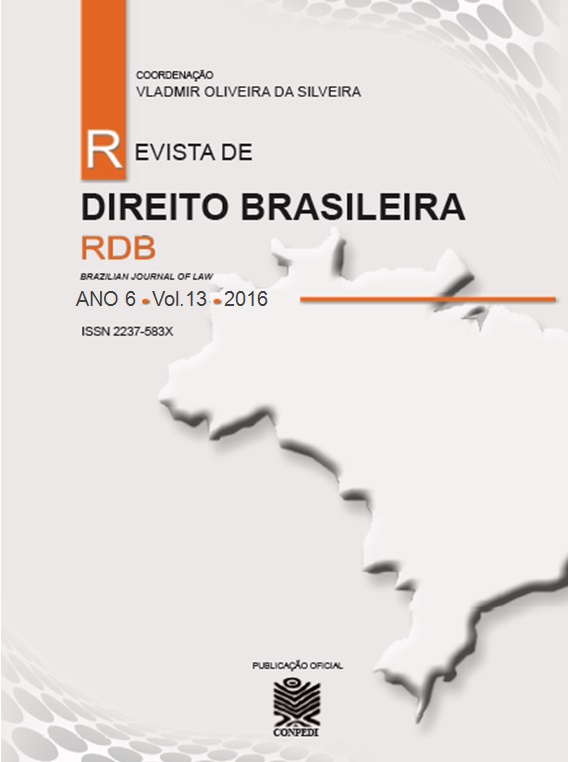THE DIFFERENCES OF CIVIL UNION AND MATRIMONY ON INHERITANCE SUCCESSION ARE CONSTITUTIONAL? THE POSITION OF DOCTRINE AND COURTS.
Main Article Content
Abstract
Downloads
Article Details
• O(s) autor(es) garante(m) que a contribuição é original e inédita e que não está em processo de avaliação em outra(s) revista(s);
• A revista não se responsabiliza pelas opiniões, ideias e conceitos emitidos nos textos, por serem de inteira responsabilidade de seu(s) autor(es);
• É reservado aos editores o direito de proceder ajustes textuais e de adequação do artigo às normas da publicação.
Autores mantêm os direitos autorais e concedem à revista o direito de primeira publicação, com o trabalho simultaneamente licenciado sob a Licença Creative Commons Attribution que permite o compartilhamento do trabalho com reconhecimento da autoria e publicação inicial nesta revista.
Autores têm autorização para assumir contratos adicionais separadamente, para distribuição não exclusiva da versão do trabalho publicada nesta revista (ex.: publicar em repositório institucional ou como capítulo de livro), com reconhecimento de autoria e publicação inicial nesta revista.
Autores têm permissão e são estimulados a publicar e distribuir seu trabalho online (ex.: em repositórios institucionais ou na sua página pessoal) a qualquer ponto antes ou durante o processo editorial, já que isso pode gerar alterações produtivas, bem como aumentar o impacto e a citação do trabalho publicado (Veja O Efeito do Acesso Livre) emhttp://opcit.eprints.org/oacitation-biblio.html
References
CRETELLA JR., José; CRETELLA, Agnes (Trad.). Institutas do Imperador Justiniano – Manual didático para uso dos estudantes de direito de Constantinopla, elaborado por ordem do Imperador Justiniano, no ano de 533 d.C. 2. ed., São Paulo: Revista dos Tribunais, 2005.
GILISSEN, John. Introdução histórica ao direito. Trad. António Manuel Hespanha e Manuel Luís Macaísta Malheiros. 3. ed. Lisboa: Fundação Calouste Gulbenkian, 2001.
HIRONAKA, Giselda Maria Fernandes Novaes. Da ordem de vocação hereditária nos direitos brasileiro e italiano, p. 207. Revista da Faculdade de Direito da Universidade de São Paulo v. 100 p. 23-60 jan./dez. 2005
HIRONAKA, Giselda Maria Fernandes Novaes. Morrer e Suceder: passado e presente da transmissão sucessória concorrente. 2. ed. São Paulo: Revista dos Tribunais, 2014.
MORAES, Maria Celina Bodin de; TEIXEIRA, Ana Carolina Brochado. Comentário ao art. 226. In: CANOTILHO, J. J. Gomes; MENDES, Gilmar Ferreira; SARLET, Ingo Wolfgang; STRECK, Lenio Luiz (Org.). Comentários à Constituição do Brasil. São Paulo: Saraiva/Almedina, 2013.
PASSOS, Edilenice; LIMA, João Alberto de Oliveira. Memória Legislativa do Código Civil. Brasília: Senado Federal, 2014, v. 1 - 4.





